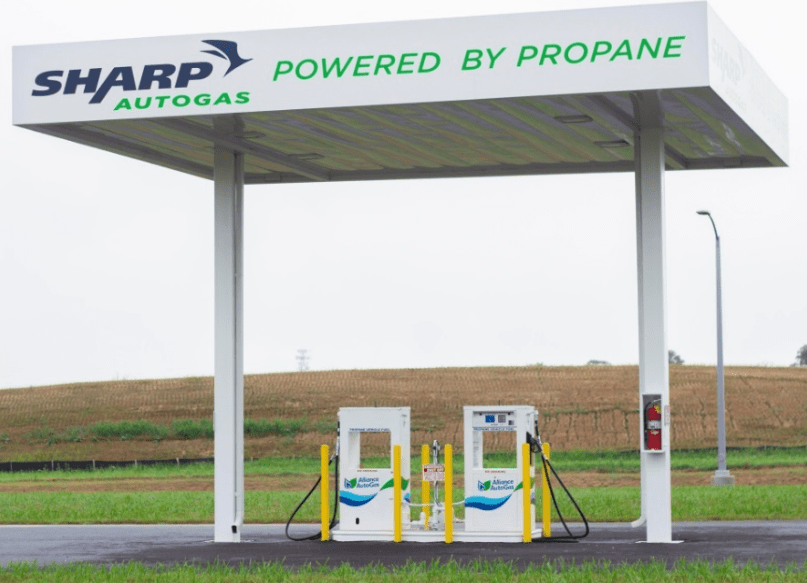Sharp Energy Inc., a wholly owned subsidiary of Chesapeake Utilities Corp., says it recently opened a new Sharp Energy headquarters building and propane autogas fueling station in Georgetown, Del.
According to Sharp Energy, the autogas fueling station was developed in partnership with Alliance AutoGas, a national network of over 120 companies that deliver alternative fueling solutions, including U.S. Environmental Protection Agency-certified autogas vehicle conversions, on-site fueling infrastructure, fuel supply, safety and operational training, and ongoing technical support.
Ed Hoffman, president of Blossman Services Inc., which serves as the principal vehicle technology provider for Alliance AutoGas, notes, “It is encouraging to see continued investment in propane autogas. With affordable dispensing infrastructure and easy-to-adapt conversion technology, fleets are able to experience a positive [return on investment] in a year or two and help clean the air, utilizing the cleanest fossil fuel available.”
Sharp Energy’s new headquarters site is the location of the seventh public autogas fueling station in the Mid-Atlantic region.
“We’re very proud to add this propane fueling station to Sussex County,” says Elaine B. Bittner, senior vice president of strategic development and chief operating officer of Sharp Energy. “The stations are supporting the company’s environmental initiatives in supplying propane, a clean alternative fuel, to the rapidly growing number of fleet vehicles in the area. Autogas-powered vehicles produce up to 20 percent lower emissions than gasoline vehicles and offer substantial cost savings on fuel and maintenance.”
Alliance AutoGas says it has installed over 800 refueling facilities in the U.S. and Canada. In addition, Alliance has converted or participated in supplying autogas to more than 10,000 propane autogas vehicles and buses in North America, with unit sales increasing monthly. In the past year, Alliance members collectively displaced 45 million gallons of gasoline and produced $70 million in fuel cost savings for the 550 fleets they service.







